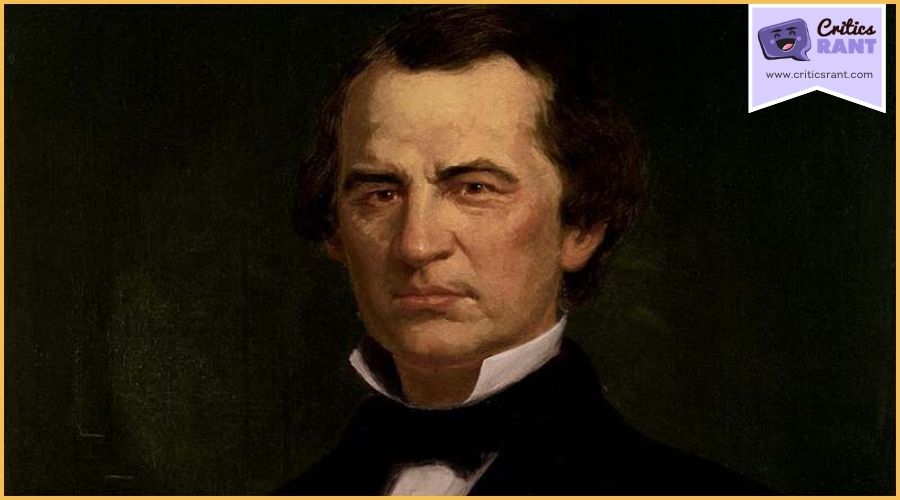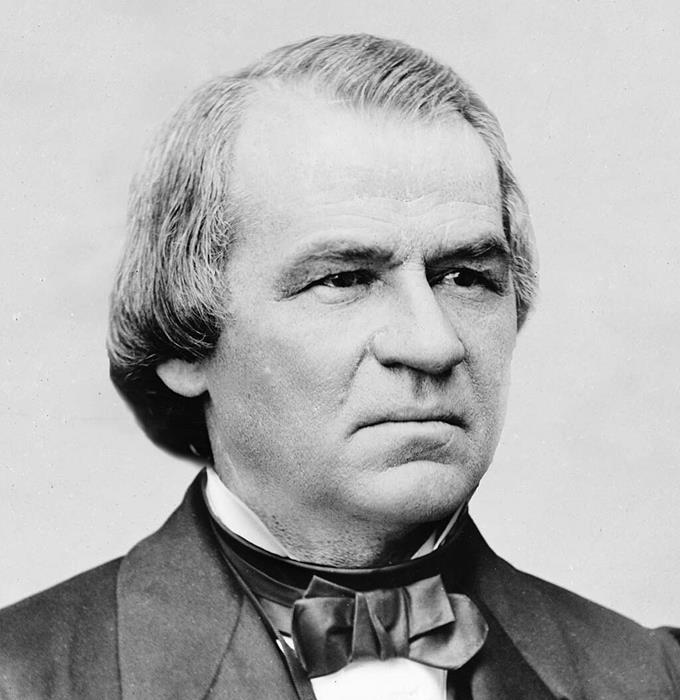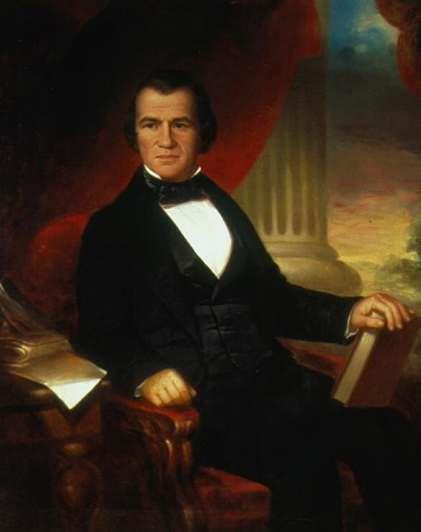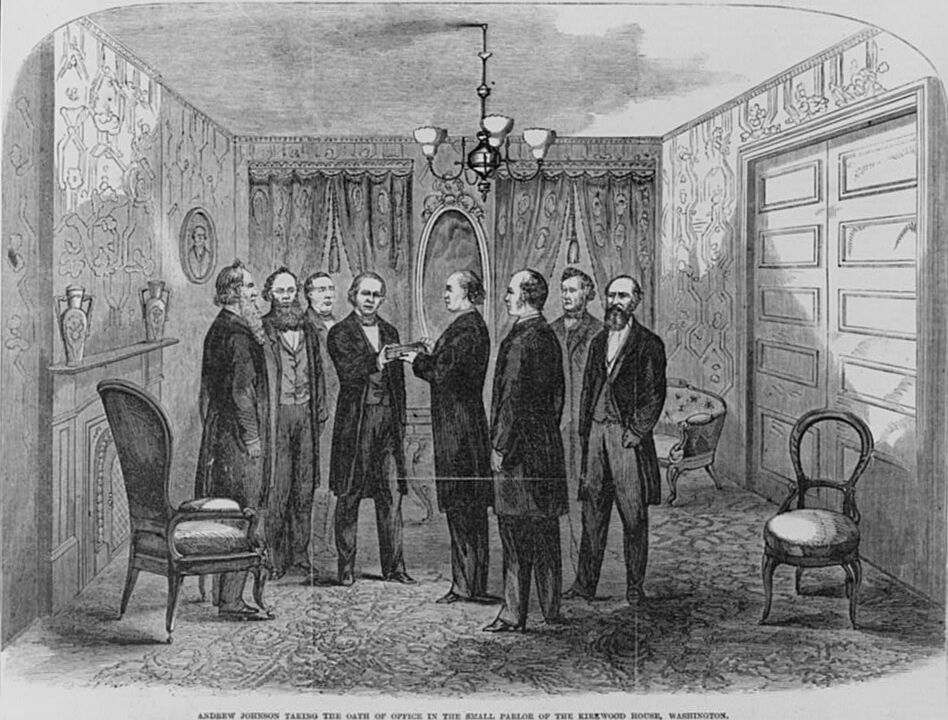Andrew Johnson was the 17th President of the United States, stepping into office after the assassination of Abraham Lincoln. His presidency came during a critical time in American history, right after the Civil War, a period filled with challenges and changes. Understanding Johnson’s personality is crucial because it deeply influenced his decisions and actions as president. This article will explore the traits that made Johnson a unique leader and how these aspects affected his role in shaping the nation during its rebuilding phase.
Presidency and Leadership Style
Andrew Johnson assumed the presidency in a nation fraught with division and turmoil following the assassination of Abraham Lincoln in 1865. His unexpected rise to the highest office came at a pivotal moment, as the United States was grappling with the aftermath of the Civil War and the daunting task of Reconstruction.
Immediate Challenges
Upon taking office, Johnson was immediately faced with the monumental task of reunifying a fractured nation. His approach to Reconstruction was marked by his own beliefs in the rapid reintegration of the Southern states without stringent penalties for the former Confederates. This stance often put him at odds with the more radical members of his party, who advocated for harsher measures and greater protections for freed slaves.
Decision-Making Style
Johnson’s leadership style was heavily influenced by his strong personal beliefs and his background as a self-made man. His decision-making process reflected the following:
- He has a firm commitment to his own principles, often disregarding popular opinion or advice from his advisors.
- He had a preference for lenient policies towards the South, which he believed would foster quicker reconciliation.
- He had an authoritarian approach to governance, where he frequently clashed with Congress over the control of Reconstruction policies.
Major Policies
During his presidency, Johnson implemented several key policies that were directly shaped by his personality:
- Veto of the Civil Rights Act of 1866, which he argued infringed on states’ rights, reflecting his deep-seated belief in limited federal intervention.
- Opposition to the Fourteenth Amendment, which granted citizenship and equal civil and legal rights to African Americans and slaves who had been emancipated after the American Civil War.
Impeachment and Struggle for Power
Johnson’s contentious relationship with Congress reached a peak with his impeachment in 1868. The primary charge against him was his violation of the Tenure of Office Act, which was seen as a direct challenge to Congressional authority. This conflict underscored his combative nature and his unwillingness to compromise on issues he viewed as essential to his vision of governance.
Throughout his presidency, Johnson’s leadership style was characterized by his resilience in the face of adversity and his firm adherence to his own ideals, regardless of the political cost. These traits, while earning him respect in some quarters, also led to his political isolation and the eventual stymieing of his policy initiatives. His tenure illustrates how a president’s personality can profoundly impact both their leadership and their legacy.
Key Personality Traits of Andrew Johnson
Andrew Johnson, the 17th President of the United States, exhibited several distinctive personality traits that influenced his political decisions and his interactions both during and after his presidency. Understanding these traits helps to illuminate his leadership style and the controversies surrounding his tenure.
- Stubbornness and Determination: Johnson was known for his stubbornness, a trait that became evident in his firm stand against Congress, especially during the Reconstruction era. His refusal to compromise on key issues led to significant political standoffs. His determination was seen in his persistence in pushing his vision of Reconstruction, emphasizing a swift reunification of the nation with minimal changes to the South’s pre-war structure despite considerable opposition.
- Loyalty to the Union: Despite being a Southern Democrat, Johnson remained staunchly loyal to the Union during the Civil War. This loyalty influenced his political career and his presidency, as he prioritized the restoration of the Union over punitive measures against the Southern states. His loyalty extended to a belief in states’ rights, which influenced his opposition to federal policies that he believed infringed upon state sovereignty.
- Resilience in Adversity: Rising from humble beginnings, Johnson’s early life was marked by adversity, which instilled in him a resilience that defined his political and personal life. This trait was particularly evident during his impeachment trial, where he fought vigorously against what he viewed as an unjust attempt to remove him from office.
- Pragmatism and Practicality: Johnson’s approach to politics and governance was highly pragmatic. He often made decisions based on practical considerations rather than ideological purity or popularity. This approach was evident in his Reconstruction policies, where he sought quick solutions that could bring about immediate results, even if they were unpopular or controversial.
- Independence and Isolation: His independence of thought often led to isolation in political circles. Johnson’s willingness to go against his party and his advisors made him a solitary figure in his own administration. This isolation was compounded by his tendency to engage in public disputes with other government branches and officials, further straining necessary alliances and complicating his efforts to govern effectively.
These key personality traits of Andrew Johnson show a president who was often in conflict with the prevailing currents of his time, driven by a complex mix of determination, loyalty, and independence. These characteristics shaped his presidency and left a mixed legacy that continues to be debated by historians.
Personal Relationships and Public Perception
Andrew Johnson’s personal relationships and the public’s perception of him played significant roles in both shaping and reflecting his presidential legacy. His approach to relationships and the reactions he elicited were deeply intertwined with his personality traits and political decisions.
Personal Relationships
Johnson’s relationships with political allies and adversaries were often strained due to his combative and stubborn nature. His refusal to compromise and his tendency to challenge others openly led to frequent clashes with Congress and within his own cabinet. Despite these conflicts, Johnson maintained close ties with a few loyal advisors and supporters who shared his views on Reconstruction and governance. These relationships provided him with some level of support amidst widespread opposition.
Relationship with the Military
As president, Johnson’s interactions with military leaders were marked by tension, particularly with those who were more aligned with Radical Republicans. His disagreements with influential figures like Ulysses S. Grant over the handling of Reconstruction policies highlighted his difficult relationships within the government.
Public Perception
Johnson’s public image was highly polarized. To some, he was seen as a staunch defender of the Union and a president who sought to heal the nation after the Civil War without imposing harsh penalties on the South. However, to many others, particularly Radical Republicans and advocates for freedmen’s rights, Johnson was viewed negatively. His vetoes of civil rights legislation and reluctance to support federal interventions to protect the rights of freed slaves tarnished his reputation among these groups.
His impeachment further complicated public perception, portraying him as a president at odds with American democratic principles, particularly the balance of power between branches of government.
Legacy and Historical Perspective
Over time, historical views of Johnson have continued to be mixed. Some historians credit him with attempting to restore the nation quickly after the Civil War, while others criticize his policies as missed opportunities to fundamentally address the inequities in American society.
His legacy is often seen through the lens of missed opportunities, particularly in terms of civil rights and Reconstruction. This perspective has influenced both contemporary and modern assessments of his presidency.
Conclusion
Andrew Johnson’s presidency was marked by his strong personality and firm beliefs, which deeply influenced his approach to leading a divided nation. His stubbornness and independence often led to conflicts with Congress and affected his public image. Despite the challenges and controversies, Johnson’s tenure reminds us of the complex role that personal characteristics play in shaping presidential legacies. His story encourages us to reflect on the impact of leadership styles in historical contexts and the importance of understanding a leader’s personality in assessing their contributions to history.
US Presidents | ||




